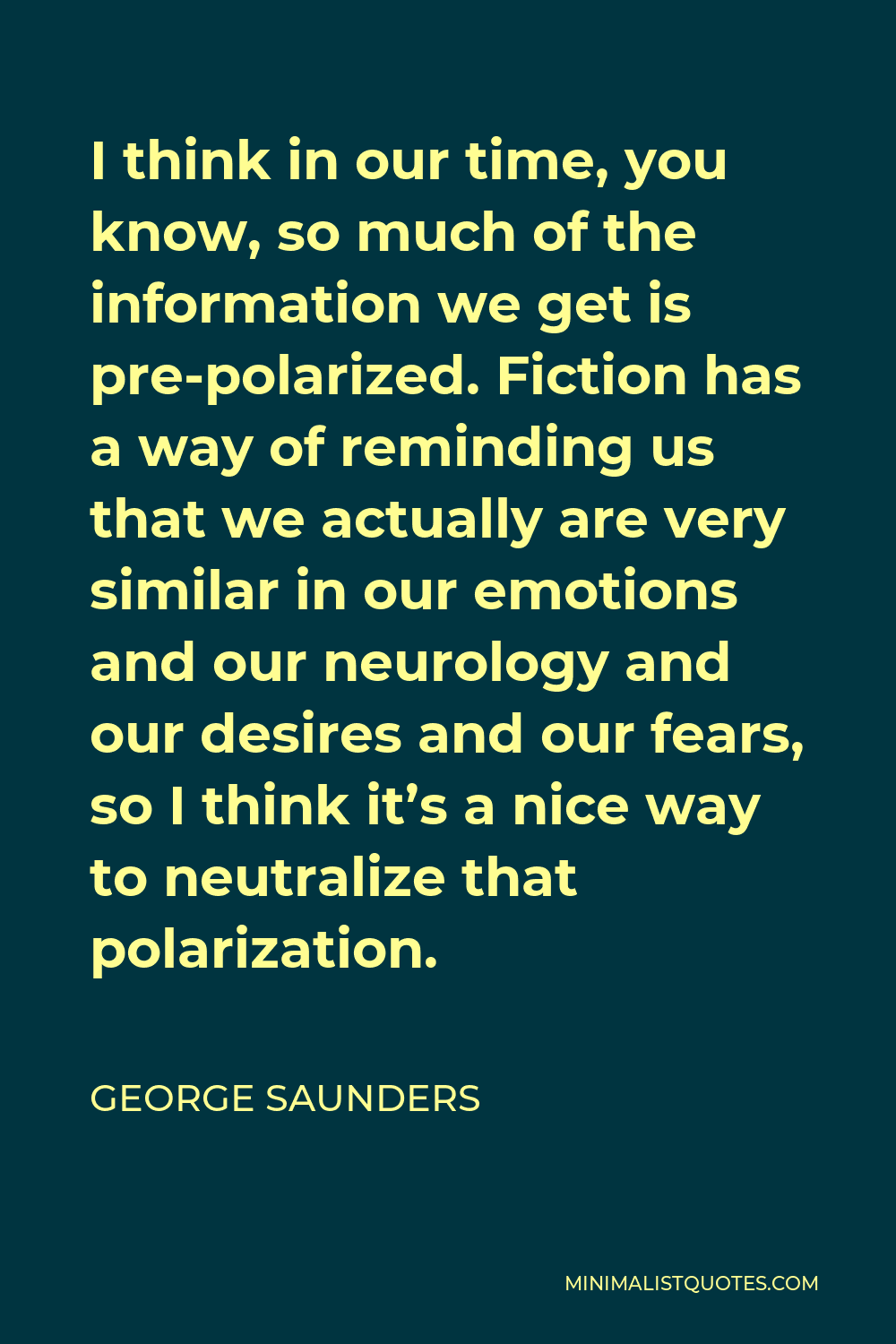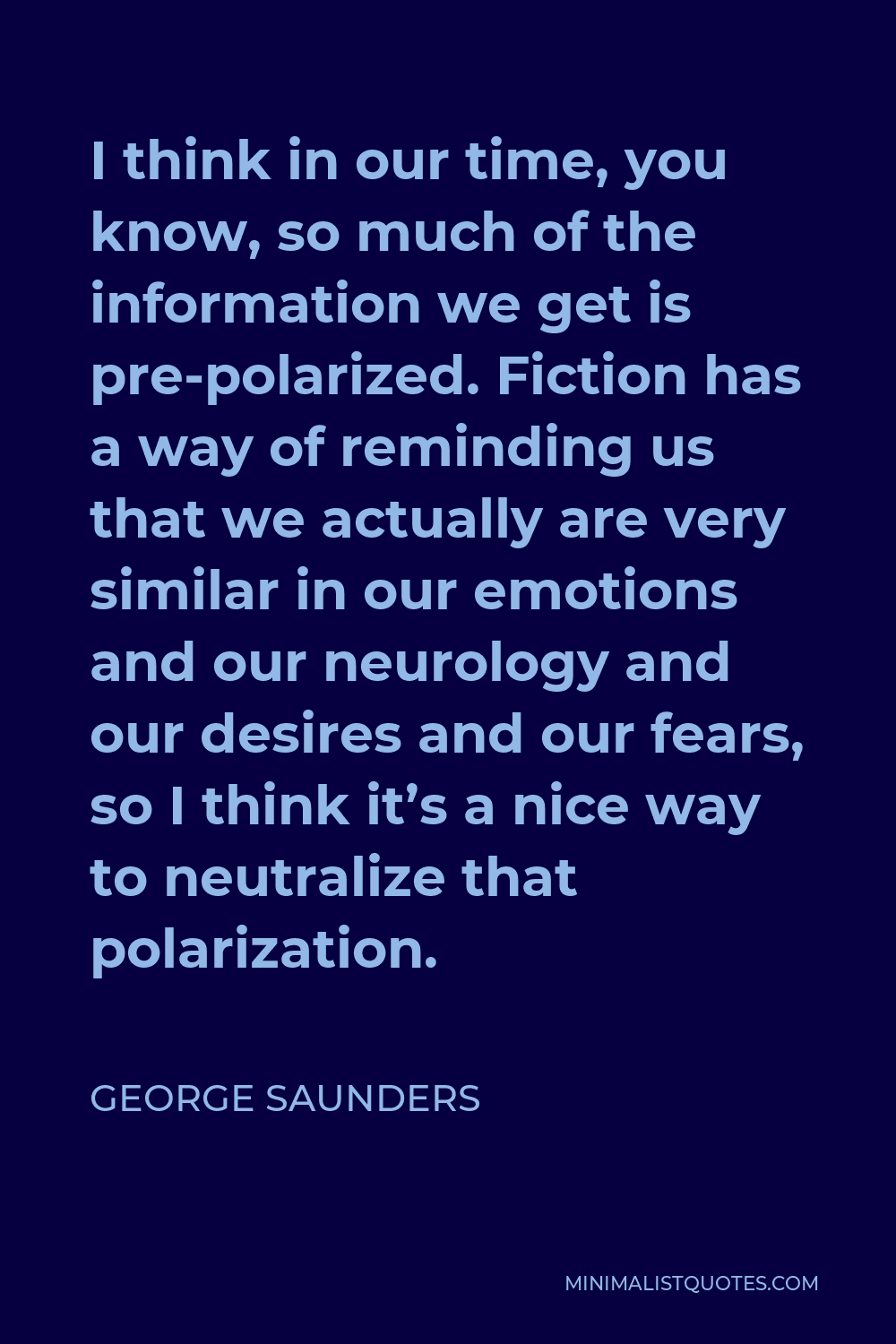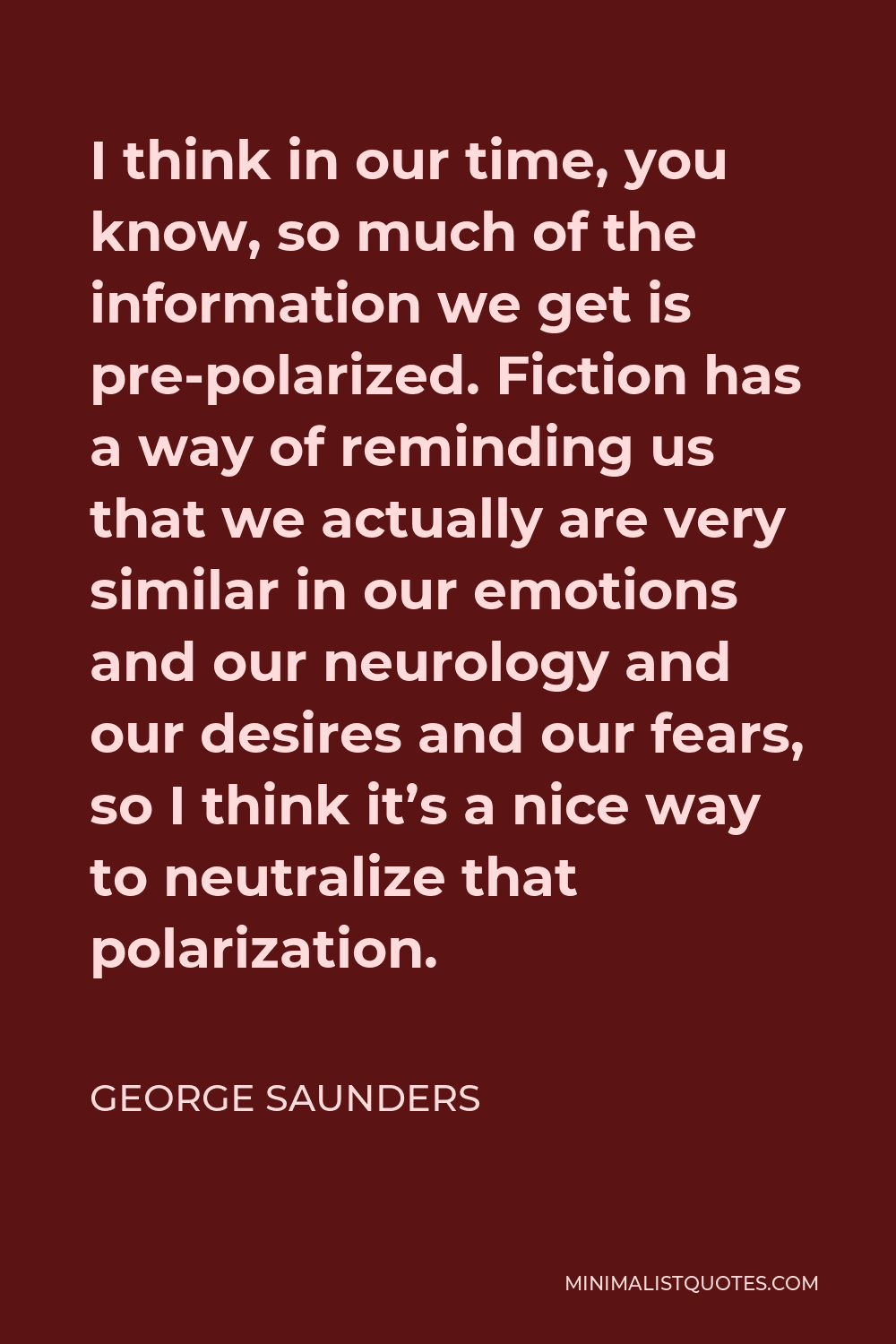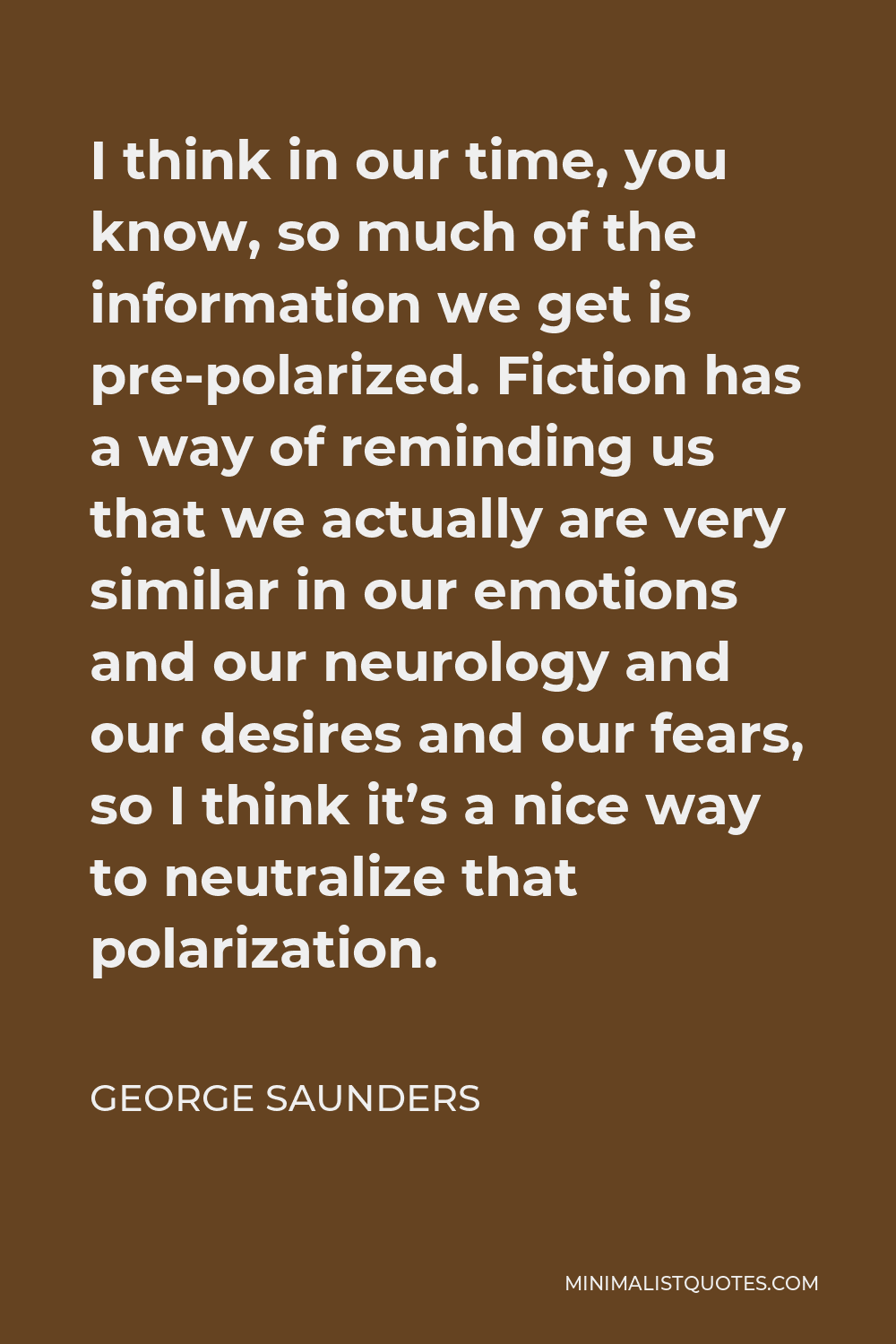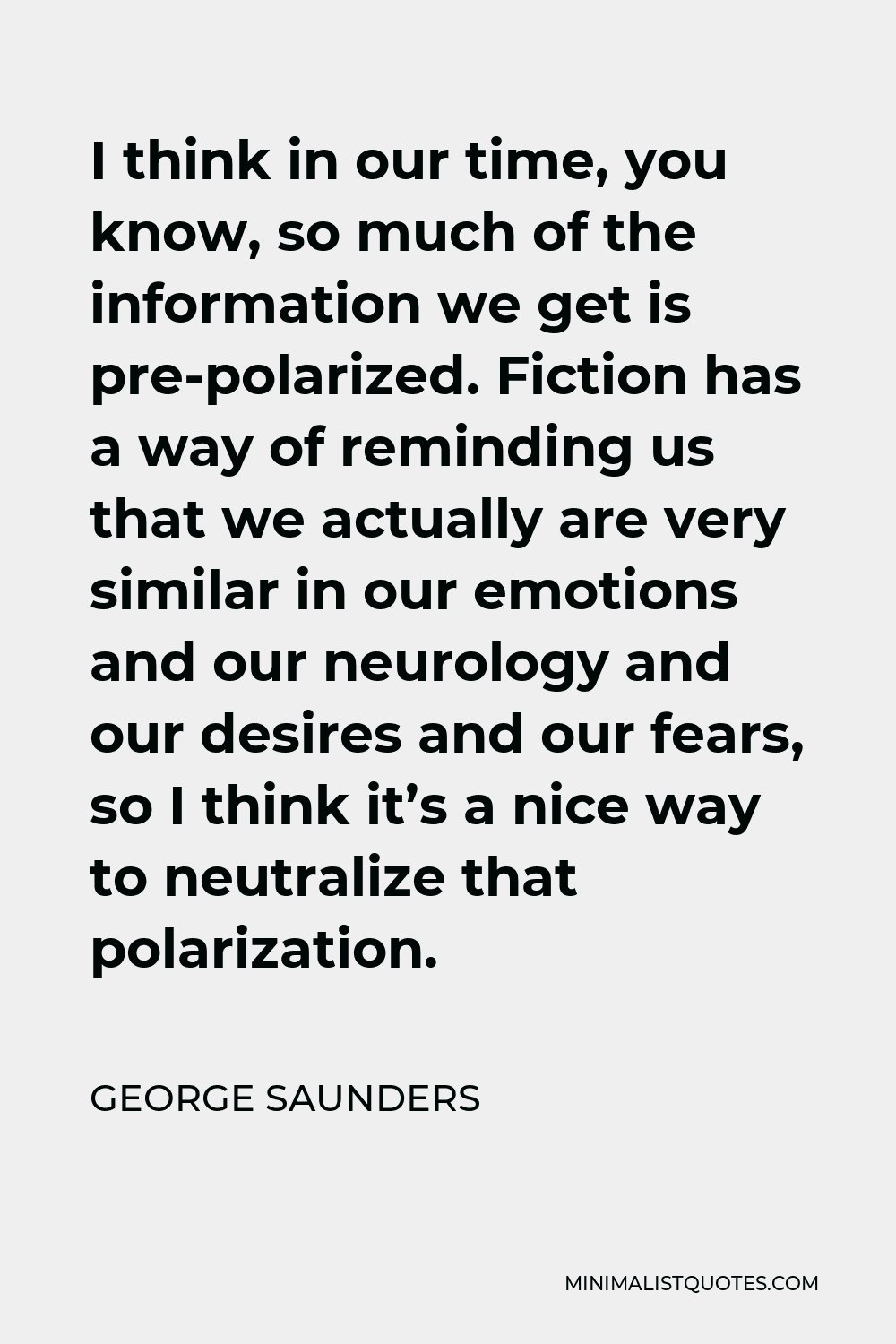I think kindness is a sort of gateway virtue – having that simple aspiration can get you into deep water very quickly – in a good way.
GEORGE SAUNDERSI think in our time, you know, so much of the information we get is pre-polarized. Fiction has a way of reminding us that we actually are very similar in our emotions and our neurology and our desires and our fears, so I think it’s a nice way to neutralize that polarization.
More George Saunders Quotes
-







-





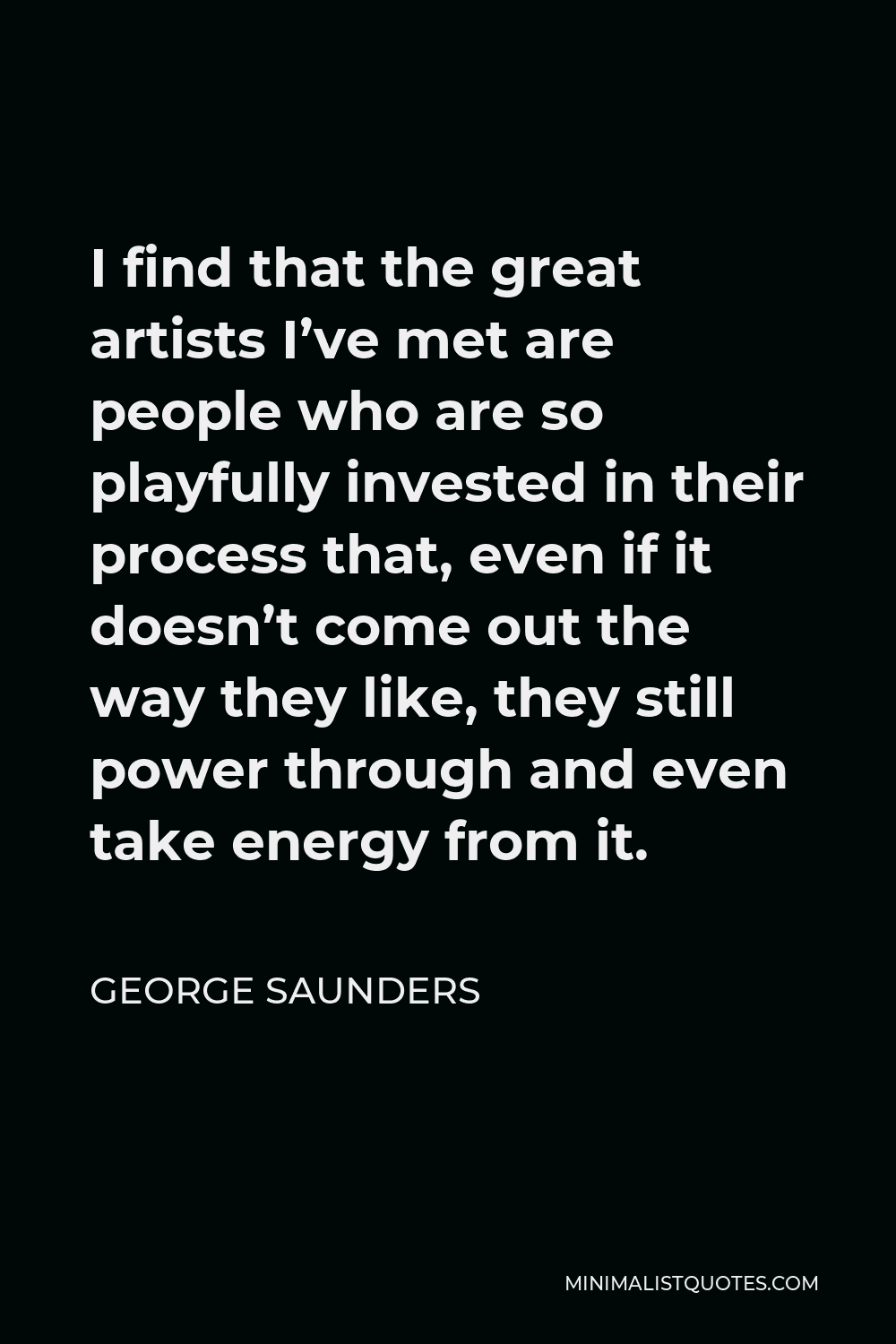
I find that the great artists I’ve met are people who are so playfully invested in their process that, even if it doesn’t come out the way they like, they still power through and even take energy from it.
GEORGE SAUNDERS -





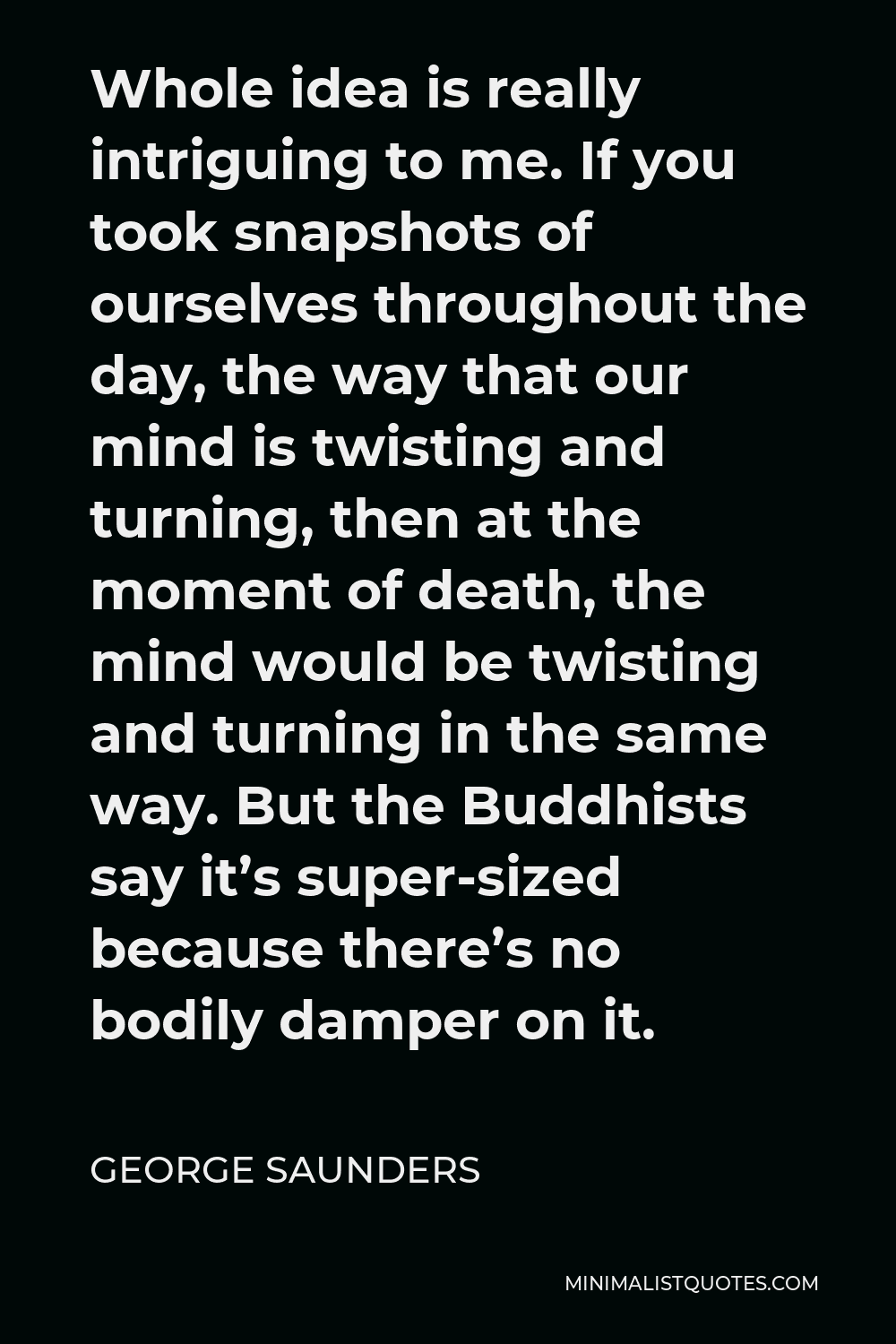
Whole idea is really intriguing to me. If you took snapshots of ourselves throughout the day, the way that our mind is twisting and turning, then at the moment of death, the mind would be twisting and turning in the same way. But the Buddhists say it’s super-sized because there’s no bodily damper on it.
GEORGE SAUNDERS -






To understand any plea for further consideration of a group you don’t know anything about to be some form of, quote, political correctness. These things are bubbling right under us.
GEORGE SAUNDERS -





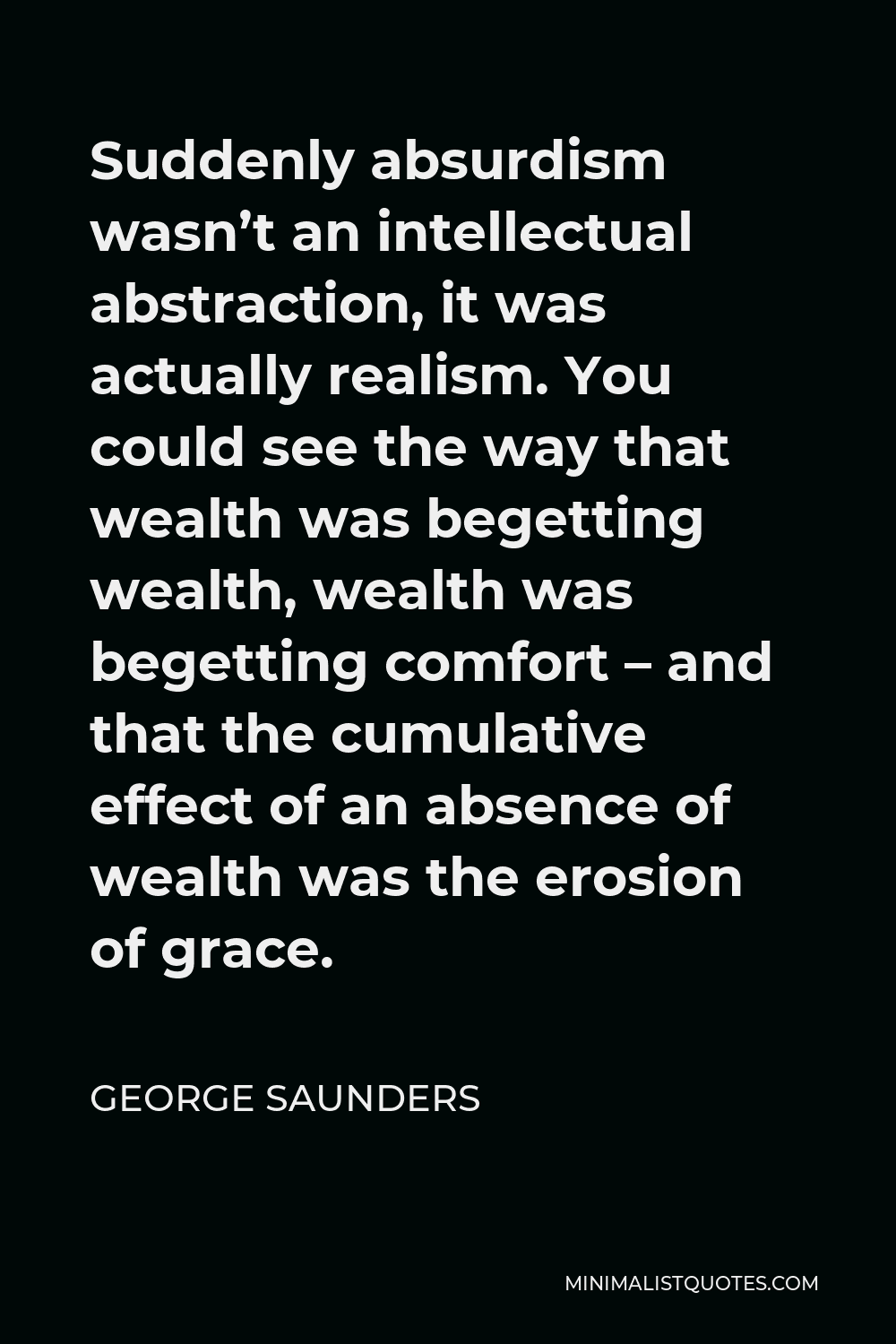
Suddenly absurdism wasn’t an intellectual abstraction, it was actually realism. You could see the way that wealth was begetting wealth, wealth was begetting comfort – and that the cumulative effect of an absence of wealth was the erosion of grace.
GEORGE SAUNDERS -





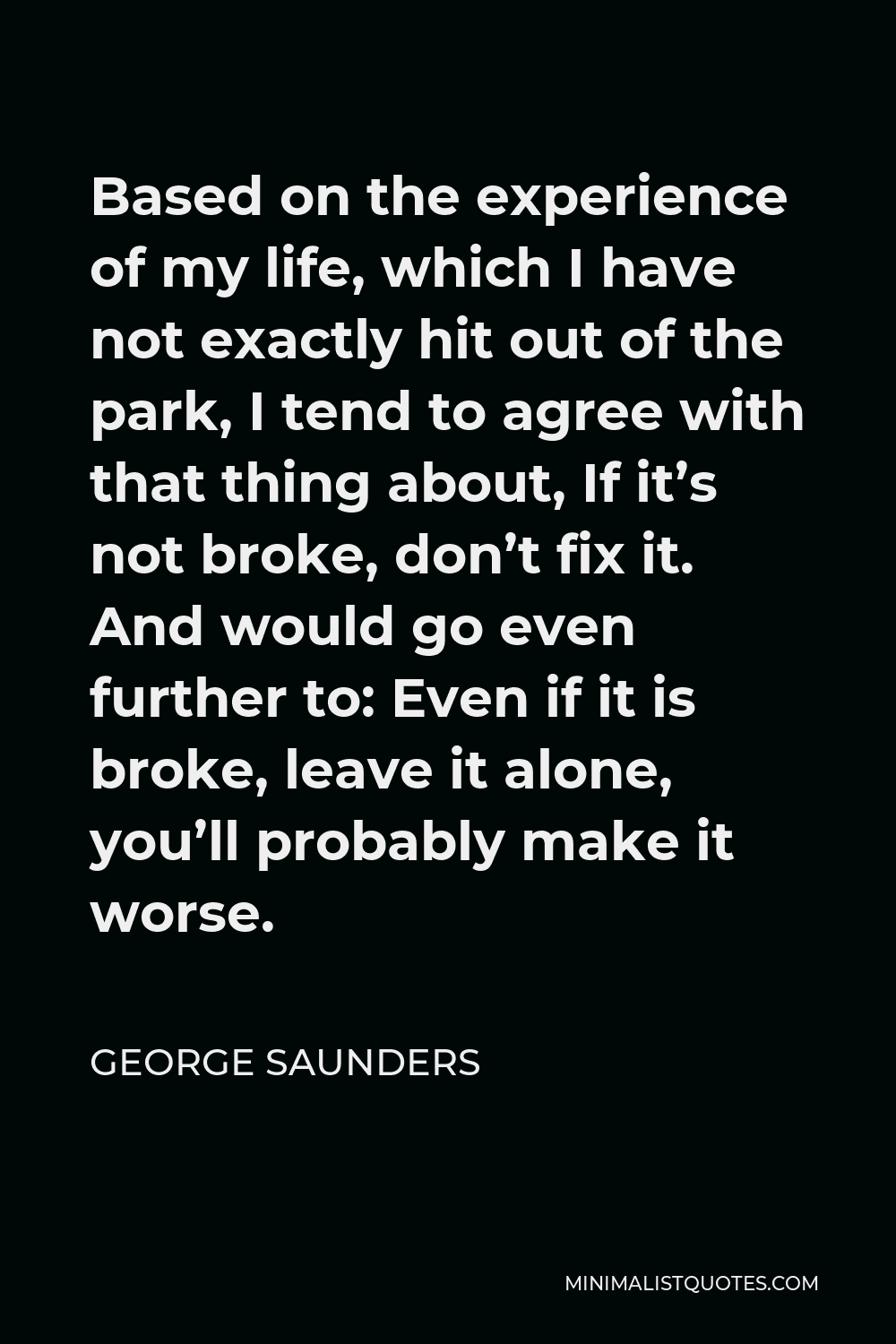
Based on the experience of my life, which I have not exactly hit out of the park, I tend to agree with that thing about, If it’s not broke, don’t fix it. And would go even further to: Even if it is broke, leave it alone, you’ll probably make it worse.
GEORGE SAUNDERS -





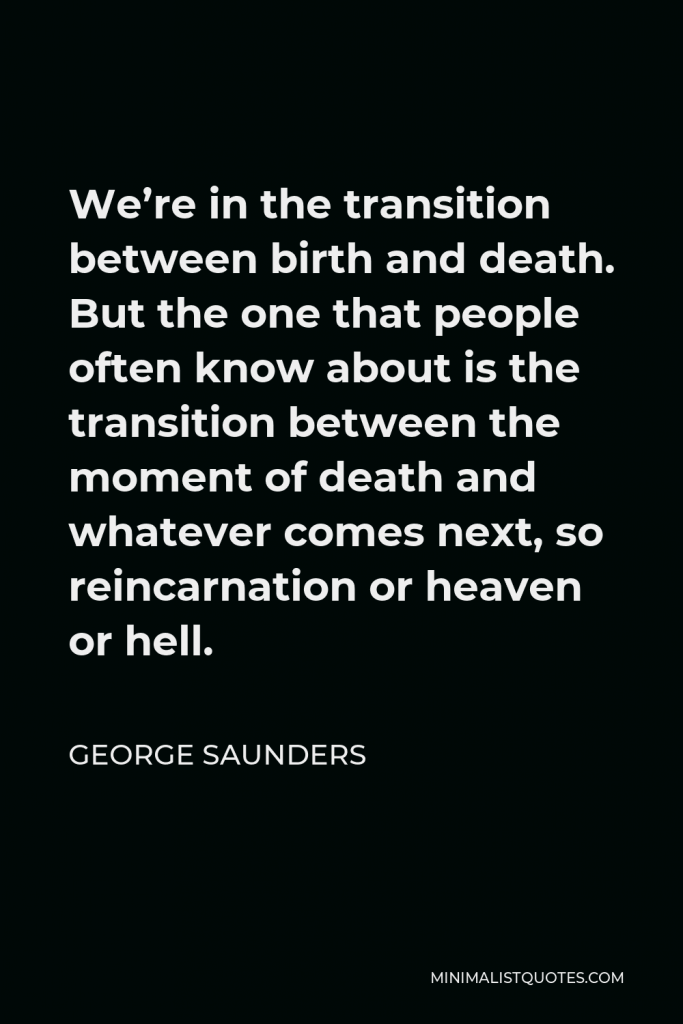

We’re in the transition between birth and death. But the one that people often know about is the transition between the moment of death and whatever comes next, so reincarnation or heaven or hell.
GEORGE SAUNDERS -





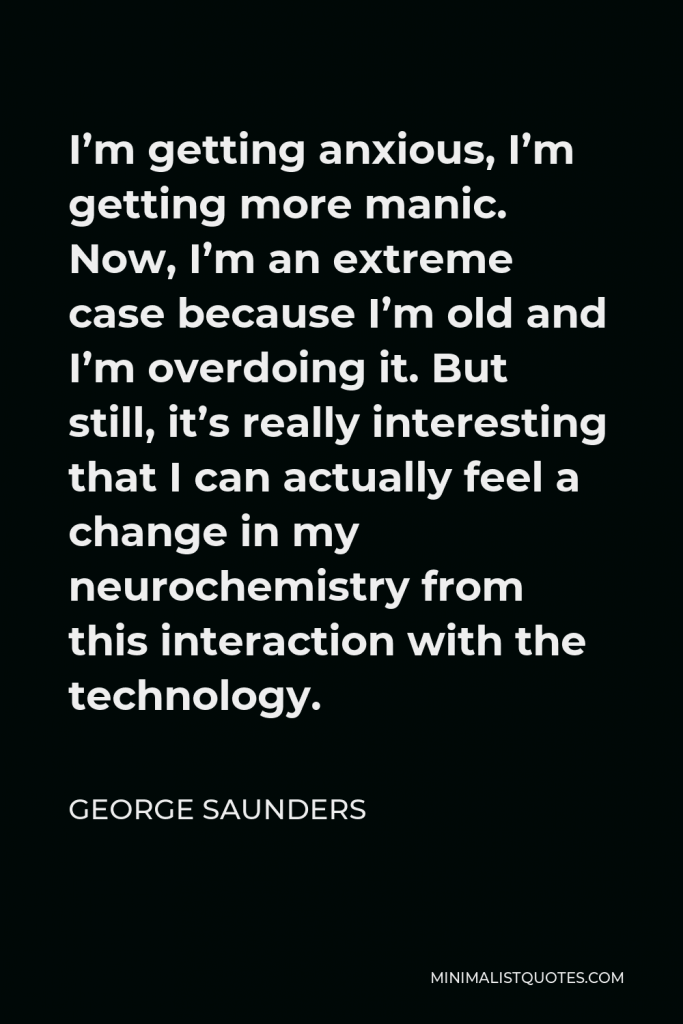

I’m getting anxious, I’m getting more manic. Now, I’m an extreme case because I’m old and I’m overdoing it. But still, it’s really interesting that I can actually feel a change in my neurochemistry from this interaction with the technology.
GEORGE SAUNDERS -





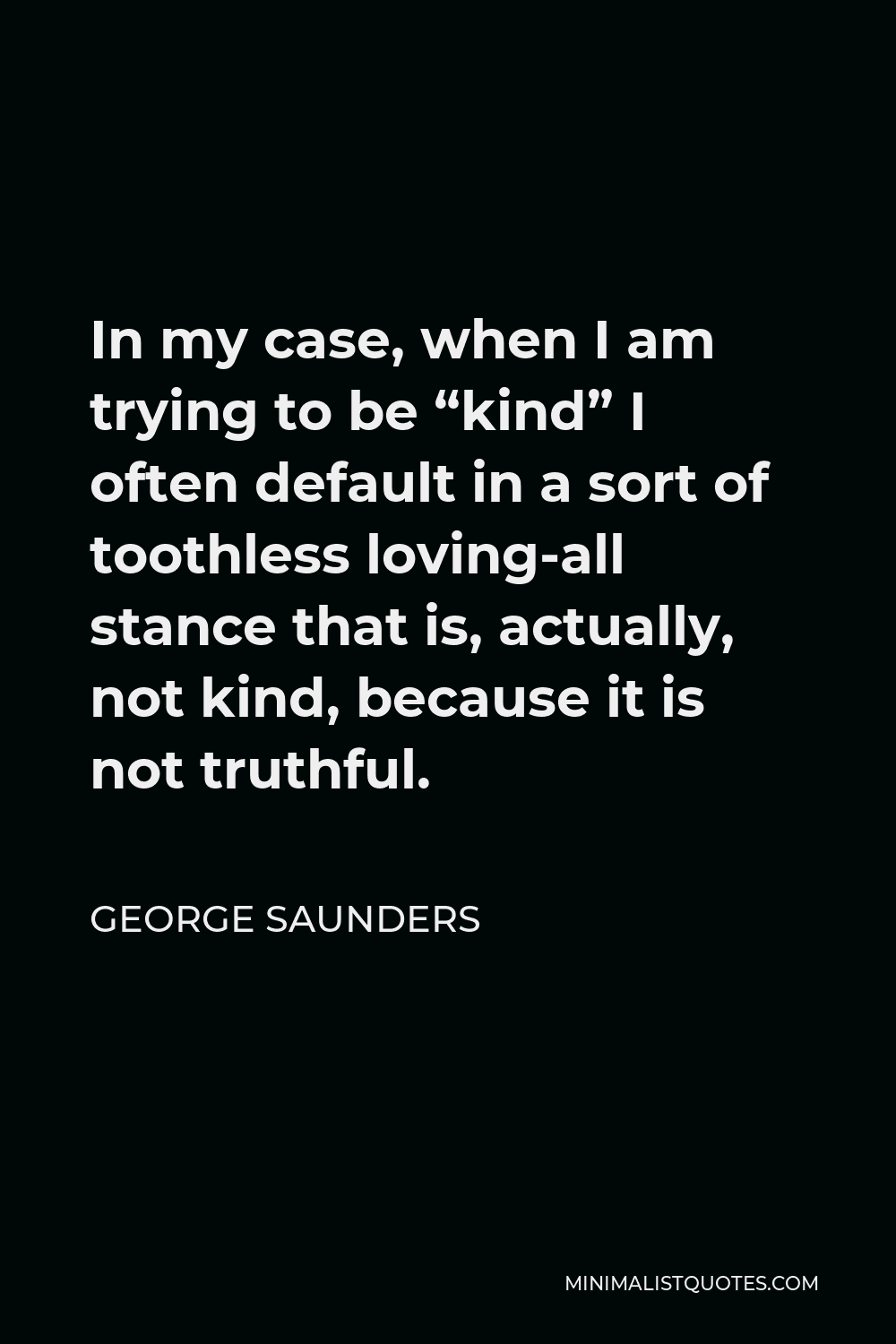
In my case, when I am trying to be “kind” I often default in a sort of toothless loving-all stance that is, actually, not kind, because it is not truthful.
GEORGE SAUNDERS -





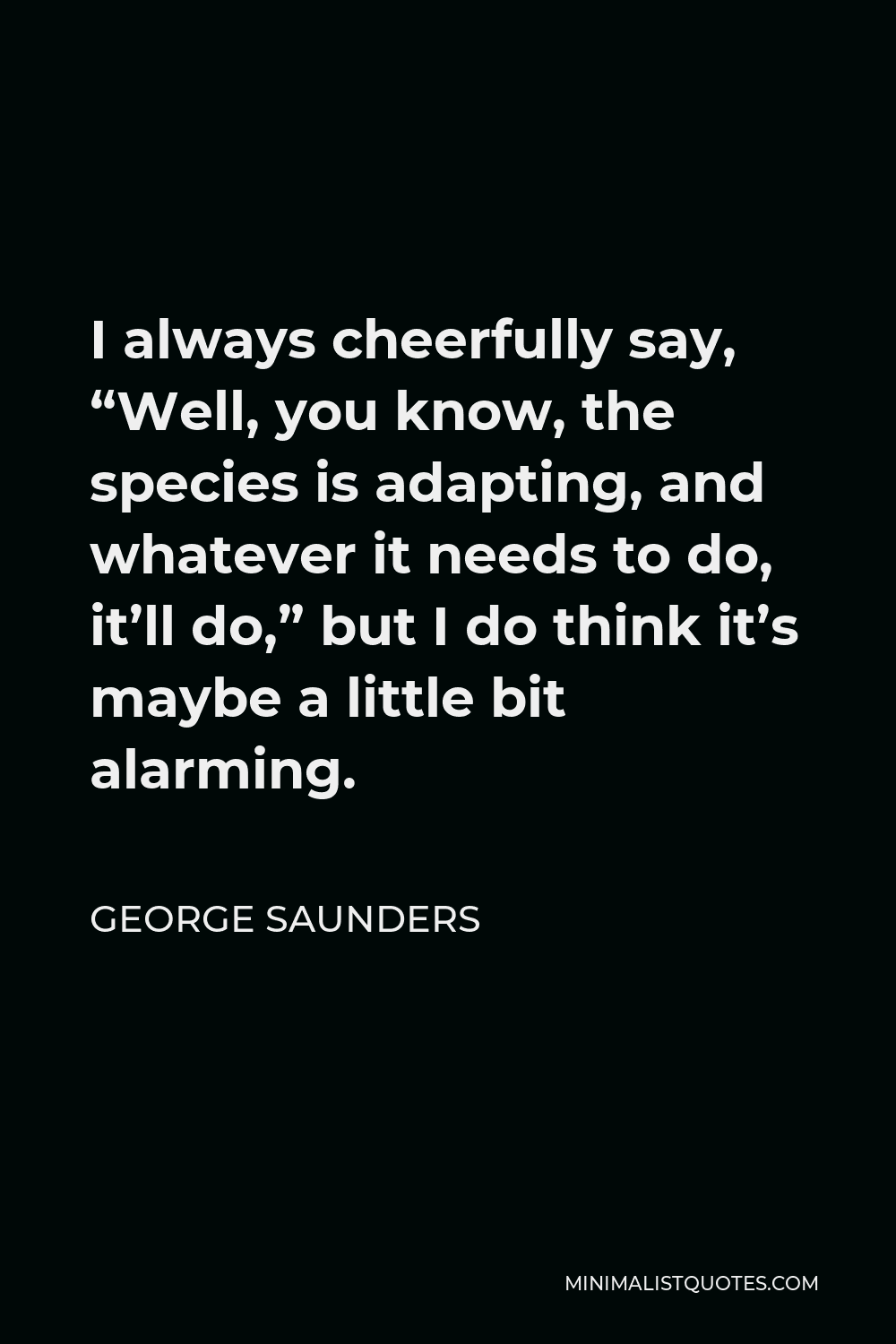
I always cheerfully say, “Well, you know, the species is adapting, and whatever it needs to do, it’ll do,” but I do think it’s maybe a little bit alarming.
GEORGE SAUNDERS -





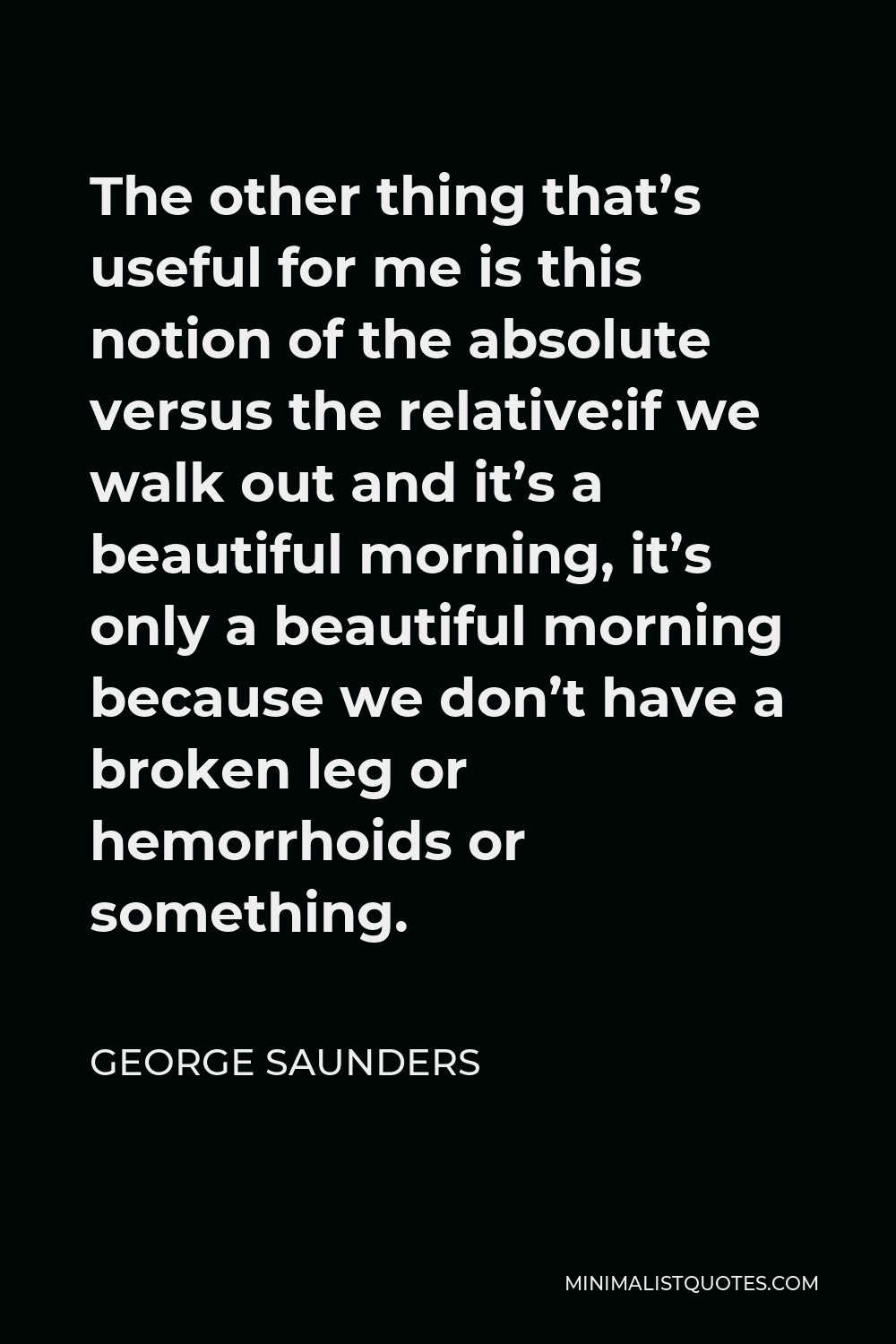
The other thing that’s useful for me is this notion of the absolute versus the relative:if we walk out and it’s a beautiful morning, it’s only a beautiful morning because we don’t have a broken leg or hemorrhoids or something.
GEORGE SAUNDERS -






The one thing I noticed retroactively was that the energy at those Trump rallies was off the charts compared to the Hillary Clinton rallies. The Bernie Sanders energy was as good, gentler, but there was a real passion there.
GEORGE SAUNDERS -





![George Saunders Quote - “Kindness” can mean a lot of different things. In this case, I felt I had to present his [Donald Trump’s] supporters in as fair a light as possible – many of them hadn’t been interviewed before and that entailed some interviewer-courtesy in the editing and so on.](https://minimalistquotes.com/images/kindness-can-mean-a-lot-of-different-things-in-thi.jpg)
“Kindness” can mean a lot of different things. In this case, I felt I had to present his [Donald Trump’s] supporters in as fair a light as possible – many of them hadn’t been interviewed before and that entailed some interviewer-courtesy in the editing and so on.
GEORGE SAUNDERS -







Nostalgia is, ‘Hey, remember the other mall that used to be there?’
GEORGE SAUNDERS -





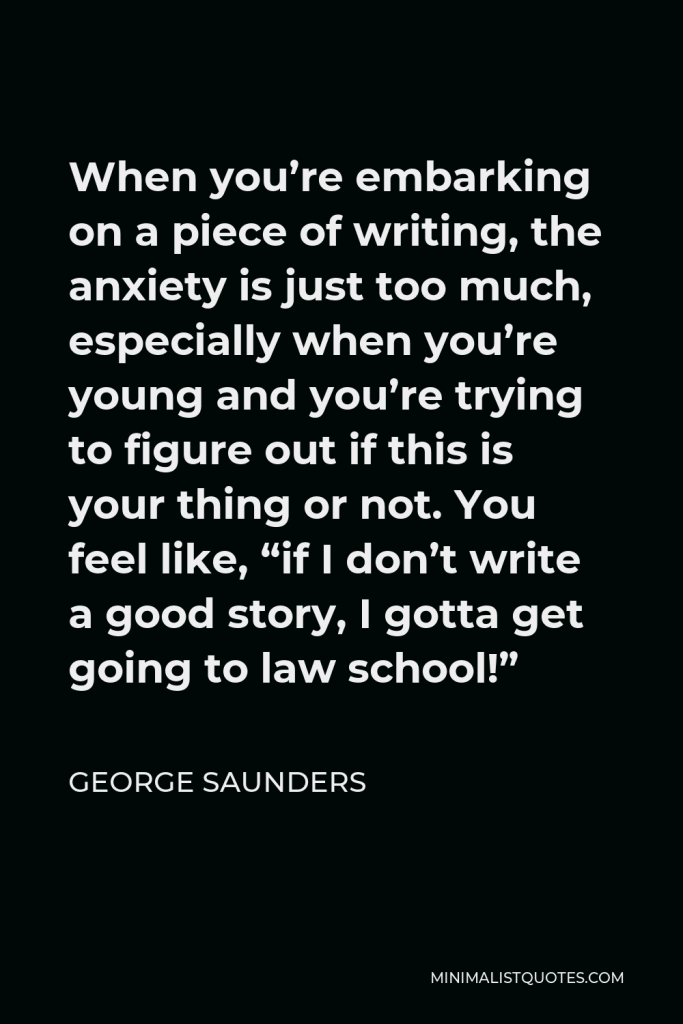

When you’re embarking on a piece of writing, the anxiety is just too much, especially when you’re young and you’re trying to figure out if this is your thing or not. You feel like, “if I don’t write a good story, I gotta get going to law school!”
GEORGE SAUNDERS -





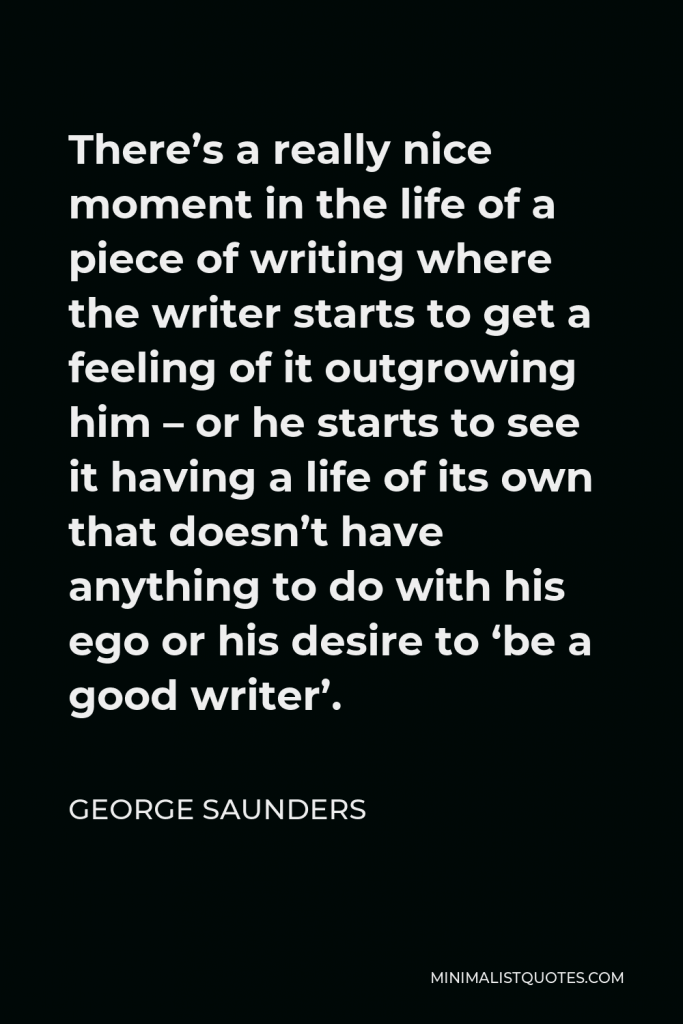

There’s a really nice moment in the life of a piece of writing where the writer starts to get a feeling of it outgrowing him – or he starts to see it having a life of its own that doesn’t have anything to do with his ego or his desire to ‘be a good writer’.
GEORGE SAUNDERS

